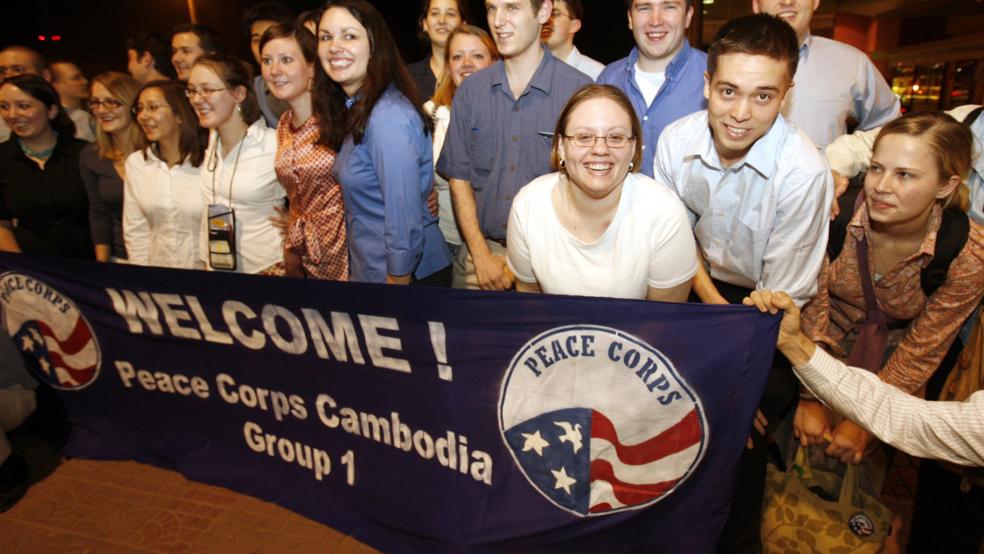When he created the Peace Corps in 1961 to provide technical assistance to other countries and foster better understanding of American culture, President John F. Kennedy urged a new generation of young people to “ask not” what their country could do for them but what they could do for their country.
Between 1961 and 2015, nearly 220,000 Americans answered the call by joining the Peace Corps and serving in 140 countries. And despite a mixed record of successes and controversies over the decades, the Peace Corps remains a highly regarded international program. Last week, Congress approved a new $410 million operating budget for the Peace Corps as part of the $1.1 trillion fiscal 2016 omnibus spending bill – the largest in the program’s 54-year history.
Related: Federal Watchdogs Bite Back at Agencies That Ignore Them
But as The Washington Post reported last week, many Peace Corps veterans are greatly disillusioned by what they view as the extraordinary indifference of officials to serious medical problems and injuries they sustained while overseas – in some cases decades ago. And now they are asking what their country can do for them.
An estimated 10 percent to 30 percent of Peace Corps volunteers develop health problems – both physical and mental – during and after their service in foreign countries, according to some Peace Corps watchdog and advocacy groups. When they return home after their service, volunteers are required to file a worker’s compensation claim with the Labor Department, but often they encounter cumbersome red tape and struggle to provide proof of their disabilities.
William Harless, who served in a remote area of Thailand in 2009, told The Post that he contracted a food-borne infection that caused nerve damage to his hip and left leg and digestive system, yet received inadequate medical attention in Thailand and after he returned to the U.S. He said his workers compensation claim for medical care was approved by the Peace Corps, but it didn’t cover the specialists he needed to see.
Related: Everybody Wins Something in the $1.1 Trillion Omnibus Spending Bill
“We thought we were doing a good thing for our country when the Peace Corps recruited us,” said Harless, who now resides in San Francisco. “Our country keeps sending 7,000 volunteers abroad annually with full awareness that the protection for their health care is inadequate or non-existent.”
But the message apparently is finally getting through to the Peace Corps brass.
A recent report by a task force of top officials established in March to investigate the complaints acknowledges the agency’s gross failures in providing quality health care services to thousands of returning volunteers, and vowed to make improvements. The report, posted on the Peace Corps’ website, said that a wide variety of veteran volunteers “shared their experiences not only about the health issues that impact the quality of their lives but the feeling of abandonment after giving months and years of service to their country.”
The task force found an extraordinarily high level of frustration and anger, noting that many have “tried to get their health service issues resolved for decades and believe there is a lack of understanding from the Peace Corps and the Peace Corps Community.”





